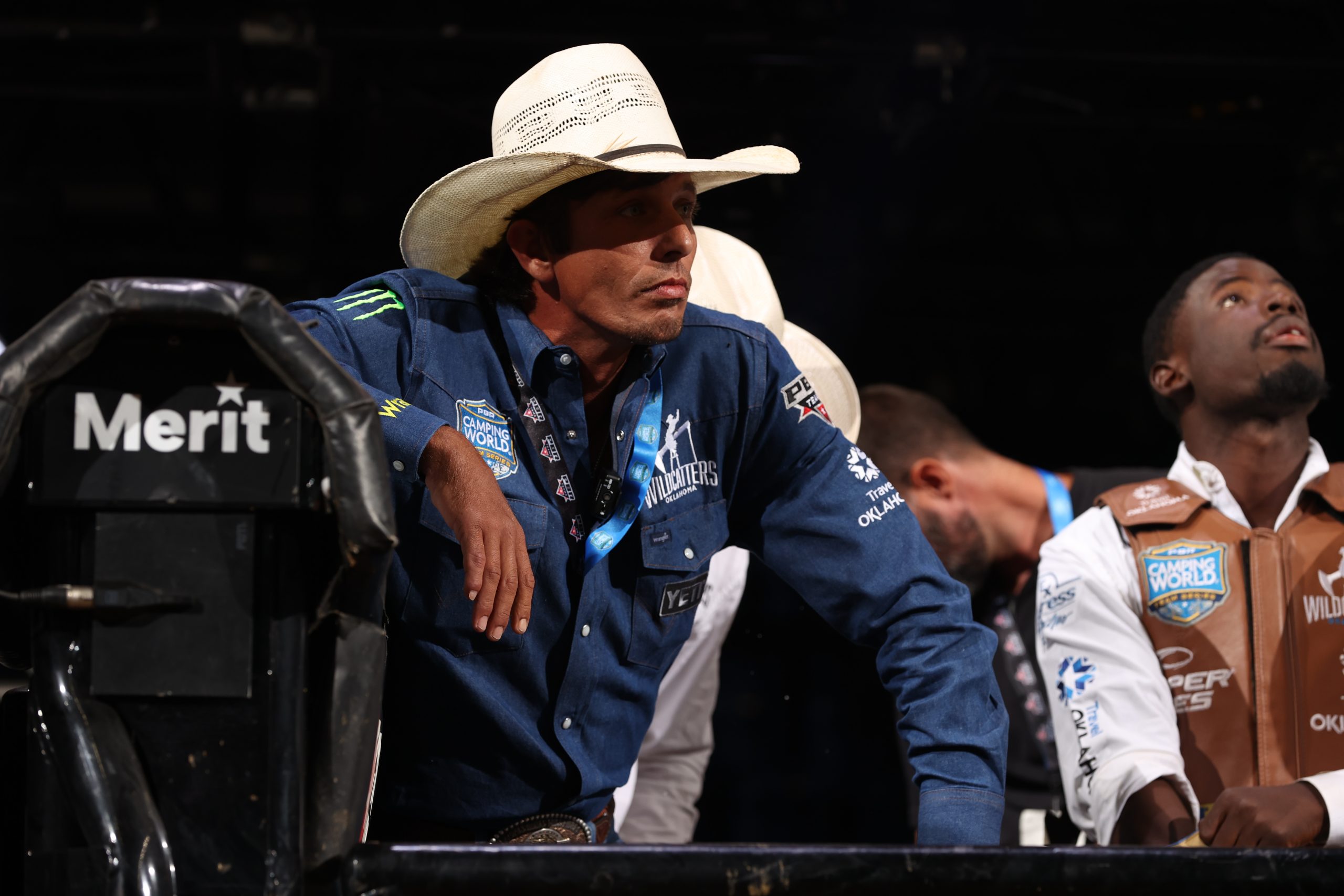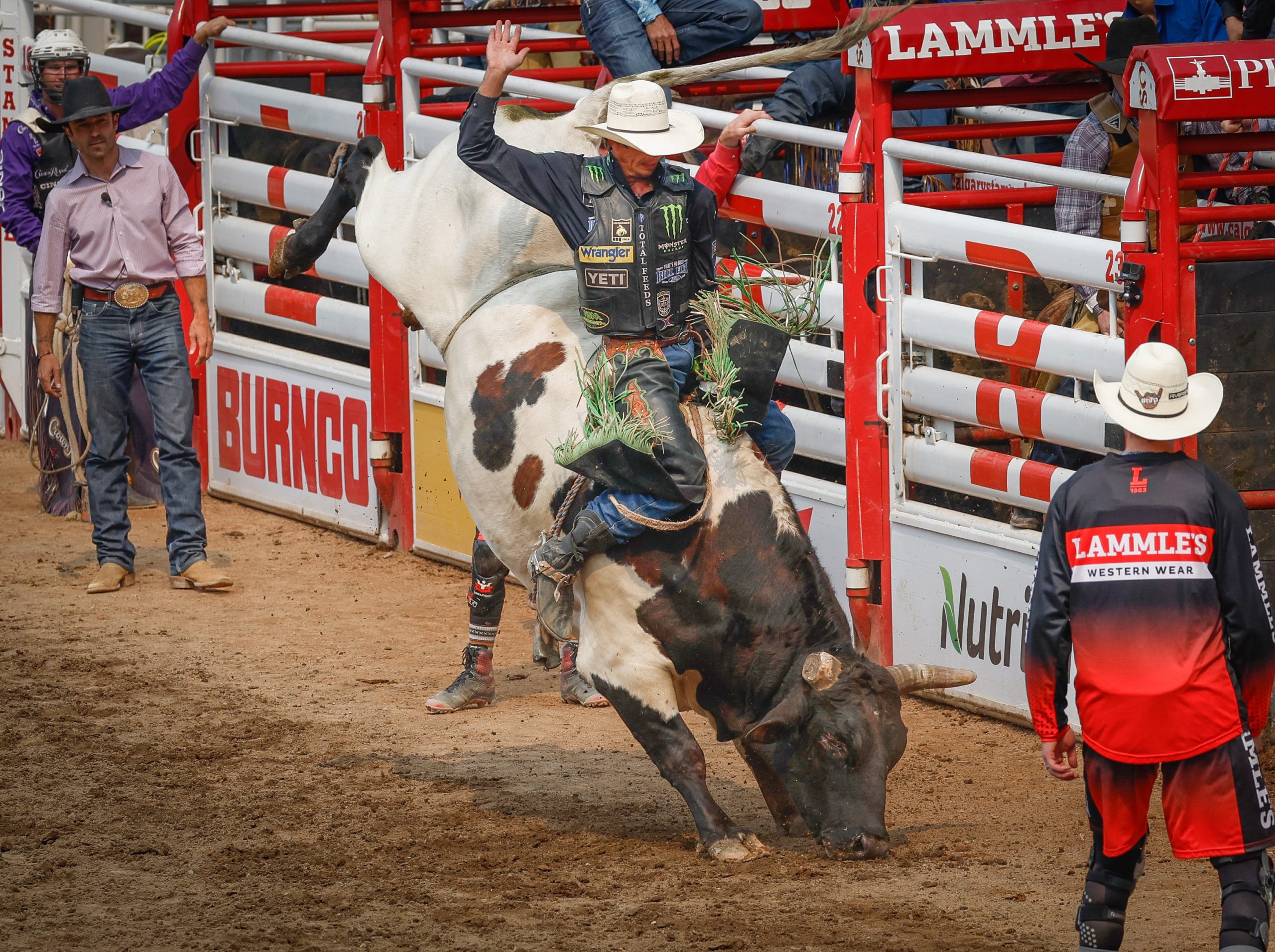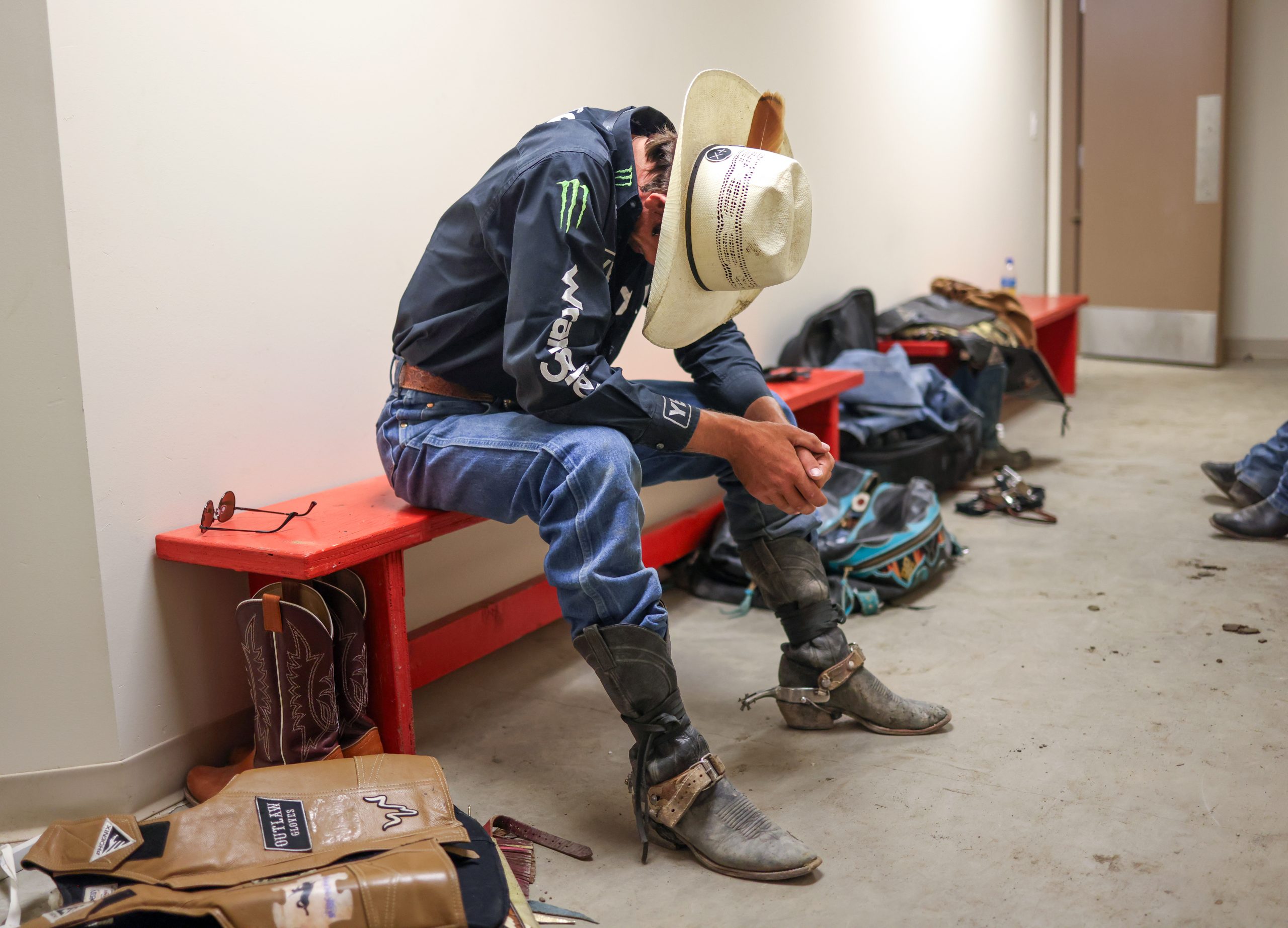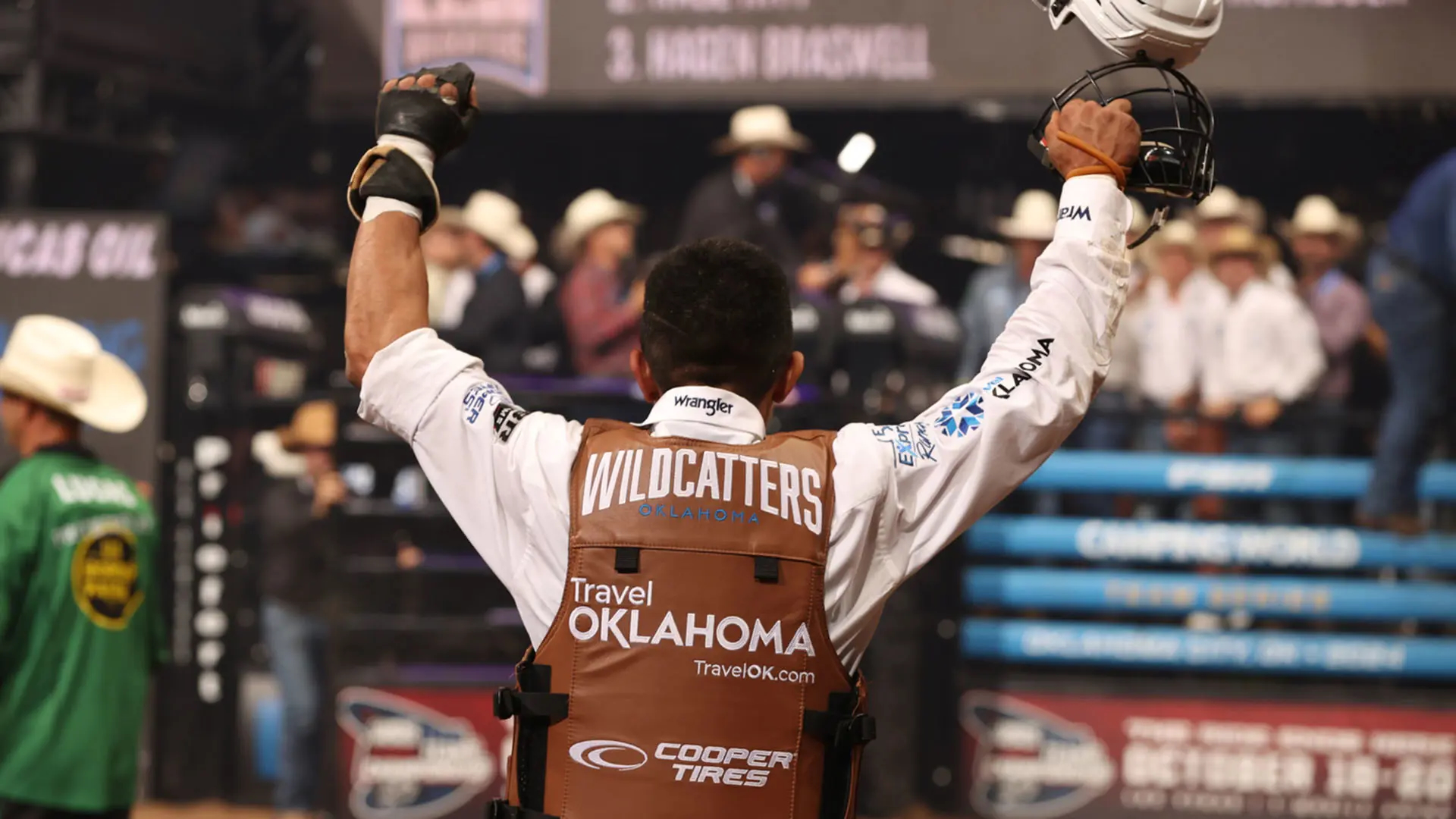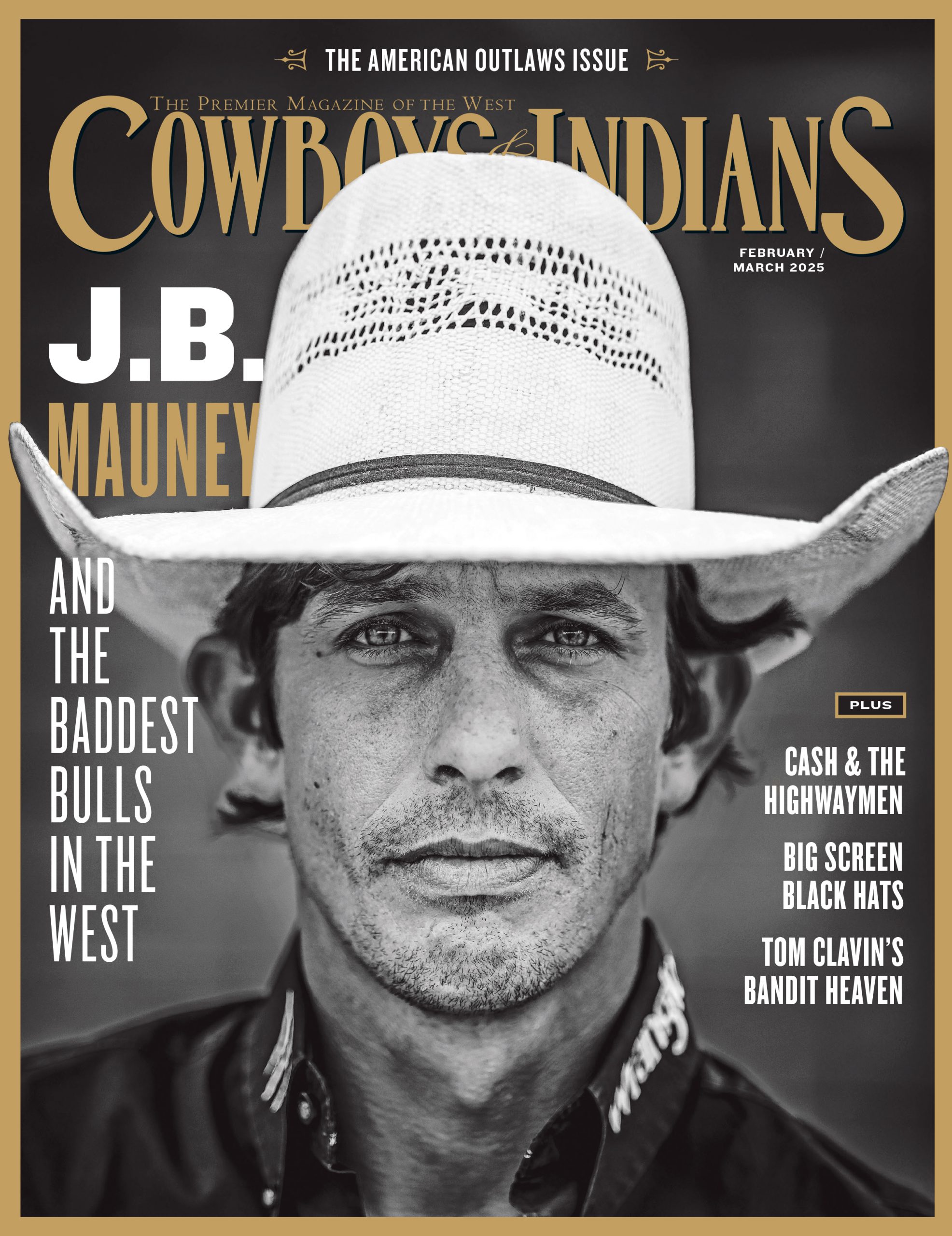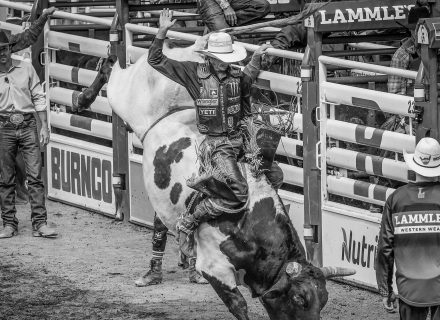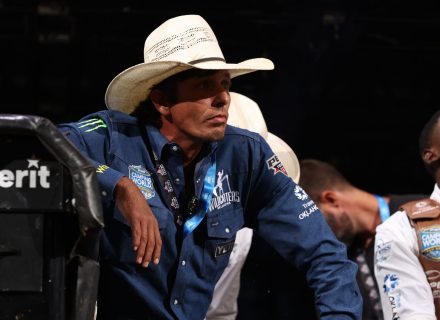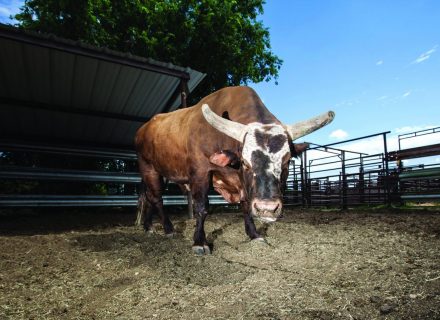J.B. Mauney’s legendary riding career has seen him evolve from singular badass to inspiring team-builder.
Clay Guiton was conscious enough to crawl, but he was crawling the wrong way, heading towards more danger. The 1,500-pound animal that had just tossed him off its back was still bucking, still angry, and mere feet away.
Guiton’s coach says instinct took over at that moment. J.B. Mauney, the legendary bull rider who now leads the Oklahoma Wildcatters, leapt into the arena and used his body to shield his 18-year-old star from grievous injury.
“It’s a game of inches,” says Mauney, whose own unparalleled career ended with a broken neck in 2023. “I’m a proven fact: one day it’s here and the next day it’s gone. That bull steps on you the wrong way, you’re done.”
The team was fined for Mauney’s leap into the arena, though neither the coach nor his general manager could care less. Mauney protected Guiton — a cornerstone of their upstart franchise — and that’s all that matters.
Founded in 2024, the Oklahoma Wildcatters are one of the two newest organizations in the team series launched by Professional Bull Riders (PBR) just two years prior. Bull riding has historically been an individual sport, and when the team series was announced, PBR had its fair share of skeptics. That includes Mauney, a toughas- nails cowboy from North Carolina.
“I never thought twice about coaching,” he says. “When someone used to ask me for advice, I’d keep my mouth shut.”
Now Mauney must embrace the role of mentor for 11 riders as the Wildcatter brass try to build a dynasty.
The team’s leaders know their first year will include the growing pains that come with starting a new pro sports team, and of course, there are plenty of challenges unique to bull riding. Each competition pits five riders from each team against one another, and coaches must pair each rider with the bull they think they have the best chance at riding for at least eight seconds. What’s more, everyone agrees the monstrous bulls at the center of this sport are only getting better. This means building a bull-riding team takes a unique mix of analysis, roster management, and savvy leadership. And the brass hope Mauney will be the perfect leader.
Brandon Bates, the Wildcatters’ GM, believes Mauney is up to that task as coach, even if he had his doubts at first.
With piercing blue-green eyes, long black hair and the kind of smile and drawl you’d expect from a classic, confident cowboy, Mauney is undeniably charismatic. Still, at a time when professional bull riders are just as likely to practice yoga as they are to shoot whisky, Mauney’s fondness for Marlboros feels out of sync.
“I had this vision of what a champion athlete should be, and J.B. was really the antithesis of that, at least on the outside,” Bates says.
It was only when Talor Gooch — a pro golfer and Oklahoma native — encouraged Bates to meet with Mauney that the GM realized he was wrong.
They met on a windy, wintry February day on Mauney’s property in Stephenville, Texas, when the rider was still recovering from his broken neck. The meeting was supposed to be brief, but Bates stayed six hours longer than planned, talking about Mauney’s career and what modern-day riders need to succeed.
“You know what a champion mindset is like; you could almost smell it on him,” Bates says. “You know when someone is willing to push those guys.”
On the ride back from Stephenville to his Dallas hotel, Bates called the team’s other coaching candidates and told them he was sorry, but he’d found his guy.
Next came the draft.
A little over a month after agreeing to the head coaching job, Mauney met Bates in Oklahoma City. His wish was simple.
“I want young, gritty tough guys,” he says. “You can teach someone how to ride bulls, but you can’t teach the try part. They’re either born with it or not.”
The team ultimately selected a trio of promising riders who have yet to reach legal drinking age: 18-year-old Hagen Braswell; 20-year-old Kase Hitt; and Guiton, also 18, who grew up just an hour outside of Mauney’s hometown and was in touch with his future coach long before draft night.
“I’ve known J.B. my whole life,” Guiton said before being selected with the second-overall pick. “Always looked up to him.”
In addition to those youngsters, Bates also traded for Cort McFadden (20 years old) and Austin Richardson (who is, at 24, one of the team’s elder statesmen). It’s clear the GM took his coach’s “young” comment to heart, and there’s a clear strategy to these choices.
“If you look at some rosters, there’s a lot of turnover,” Bates says. “Our thought process is to try to get a core group of three to four guys and build something special with them.” He knew that the guys, like Guiton, would relish the chance to be led by Mauney, a two-time PBR world champion. After all, Mauney was nicknamed “the dragonslayer” for his propensity to best the baddest bulls.
Even still, the living legend has surpassed Bates’ expectations by merging his trademark grit with the thoughtful tutelage he once refused to give. When Braswell dislocated his shoulder, Mauney (who has dislocated both of his) coached him through the recovery process.
“When guys are sore or beat-up, they play it off, because they think I’m tough,” he says. “But I tell ‘em, ‘you can be tough, but tell me the truth.’”
A genuine, honest relationship is important, he explains, because at the end of the day, he has to know everything he can about his players — their health, skills, talents and tendencies — if he is going to match the right rider with the right bull on game day.
This is the hardest part of the job, Mauney says: going to an event with six or seven guys on his 11-man roster, yet only being able to play five of his riders. The matching itself isn’t overly difficult; he watches the tapes, then goes with his gut (“You can’t start doubting yourself in this game,” he says.)
But having to bench a couple of his players, even temporarily, is anathema to a guy who always wanted to ride the toughest bull he could find. It’s also contrary to the culture he is trying to build, a culture where people “don’t know quit.” That’s a must, Bates adds, because today’s bulls “aren’t even on the same planet” as the bulls that competed in PBR 20 or even 10 years ago.
“The bulls are getting better, but how much better can the human body get?” he says. “This is going to sound dramatic, but success in this game comes down to who is willing to die for it. You need a team of guys who are willing to die for this.”
As of this writing, it appears their strategy is working. The team’s record is hovering around .500, and Mauney is optimistic about the home stretch of the season, which was scheduled to wrap last October. They’re laying the groundwork for future seasons.
They’re having fun, too, and so is their coach.
Mauney notes that most teams’ locker rooms will be pretty silent before a game. Meanwhile, the Wildcatters’ locker room will be brimming with rock music. He’ll bestow DJ duties upon one of his riders and tell them to turn it up loud.
“If you’re not having fun, it’s become a job,” he says. “And there ain’t no bull rider I ever met that ever wants a job.”
Find more on J.B. Mauney in an exclusive interview offering insight into his life at home and his plans to bring bull riding to the masses.
From our February/March 2025 issue.
PHOTOGRAPHY: Leah Hennel







